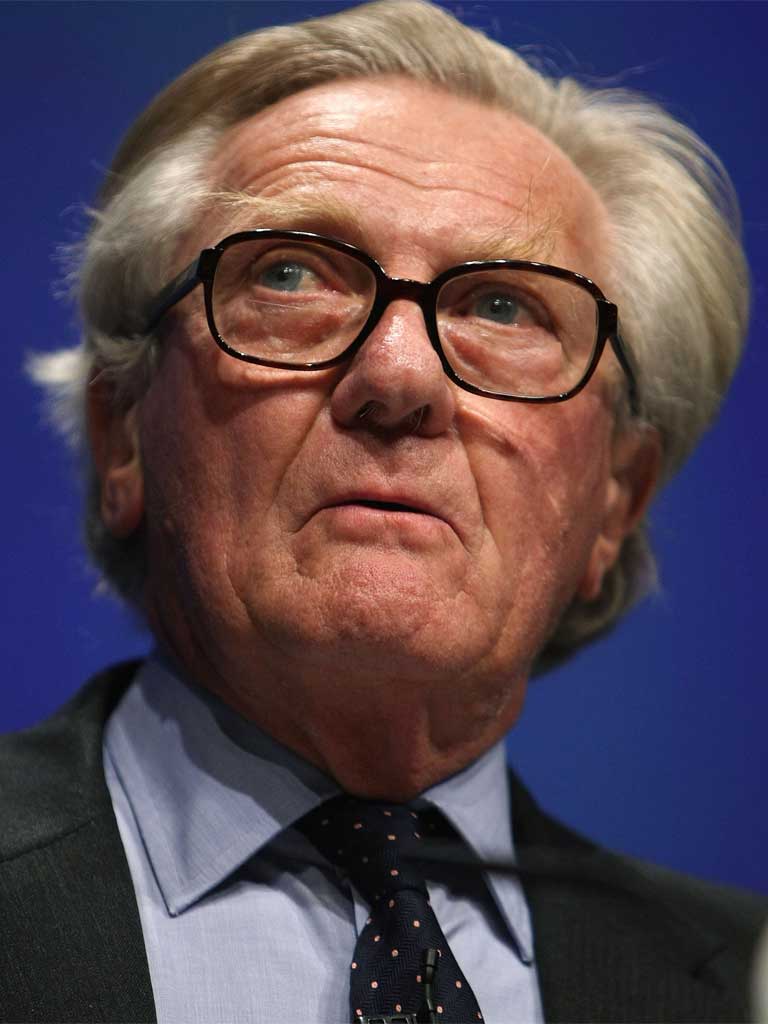Lord Heseltine braced for low turn-outs in ten city mayor referendums

Your support helps us to tell the story
From reproductive rights to climate change to Big Tech, The Independent is on the ground when the story is developing. Whether it's investigating the financials of Elon Musk's pro-Trump PAC or producing our latest documentary, 'The A Word', which shines a light on the American women fighting for reproductive rights, we know how important it is to parse out the facts from the messaging.
At such a critical moment in US history, we need reporters on the ground. Your donation allows us to keep sending journalists to speak to both sides of the story.
The Independent is trusted by Americans across the entire political spectrum. And unlike many other quality news outlets, we choose not to lock Americans out of our reporting and analysis with paywalls. We believe quality journalism should be available to everyone, paid for by those who can afford it.
Your support makes all the difference.Lord Heseltine said yesterday he was braced for low turn-outs in ten referendums today on creating a new wave of elected city mayors as he admitted there was very little interest in the issue among the public.
Votes on whether to have directly elected mayors are being held in Birmingham, Bradford, Bristol, Coventry, Leeds, Manchester, Newcastle-upon-Tyne, Nottingham, Sheffield and Wakefield. Liverpool and Salford will also choose their first elected mayors.
Lord Heseltine, an informal adviser to David Cameron on mayors, insisted the moment could be “transformational” for England’s largest cities – and predicted other areas would follow suit.
The former Deputy Prime Minister added: “I hope people will have the vision to grab the opportunity.”
But in an interview with the Independent, he conceded it had been an uphill struggle to engage voters in major cities on the subject.
“People have no interest in their councils, they don’t believe they matter, they don’t think anything will change … this is deeply depressing. But it reflects the reality, so I expect low turn-outs,” he said.
Amid suggestions that the outcome of the Birmingham referendum could be too close to call, Lord Heseltine refused to be drawn on how many of the ten cities would support mayors.
He said: “We don’t what public opinion is going to be, but the one thing we do know is there is going to be minimal interest.”
But he insisted a series of ‘no’ votes would only be a temporary setback as the process of devolving power from London could not be reversed.
“It is going with the grain of what people want to see, which is more control of their destiny,” he said.
Lord Heseltine predicted everyone in the UK would eventually elect their local leaders.
“In the foreseeable future we will have unitary counties with directly elected chief executives like every other advanced economy,” he said.
He also said he wanted elected mayors to gain more powers, suggesting they should be given extra authority locally over issues such as job creation, education, housing and transport.
Lord Heseltine hit out at claims by Labour activists in Nottingham that the scheme could lead to the election of a British National Party mayor in the city.
“It’s a shocking reflection on the Labour party who believe they can’t win democratically against such a threat and there is no evidence for it whatsoever.”
And he dismissed accusations that mavericks and eccentrics could exploit the system to become elected.
“Why hasn’t this happened anywhere else in the advanced world where they have these directly-elected mayors … why is it that in America such people go on to be president of the United States?”
Join our commenting forum
Join thought-provoking conversations, follow other Independent readers and see their replies
Comments